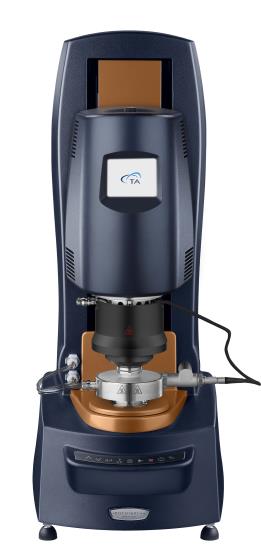
At the Peltier Plate's temperature range extremes, a vertical temperature gradient may be introduced across the sample, the significance of which will depend on the sample’s thermomechanical properties. Although this gradient can be reduced by the use of an upper geometry containing a thermal break, it can only be effectively eliminated if the Peltier Plate and upper geometry are constrained to the same temperature. The Upper Heated Plate (UHP) has been developed to allow this and is used in conjunction with the standard Smart Swap™ Peltier Plate.
For the DHR Series and AR-G2, the system can be configured with the Upper Temperature Sensor (UTS) so that the temperature of the upper plate is measured directly. The UTS consists of a special drawrod containing a Pt100 temperature sensor. The information from this sensor is transmitted to a remote reading device.

For additional information related to the UHP, refer to any of the following:
DHR/AR Series Upper Heated Plate Getting Started Guide
Configuring the Upper Heated Plate
Upper Heated Plate (UHP) Zero Heat Flow Calibration